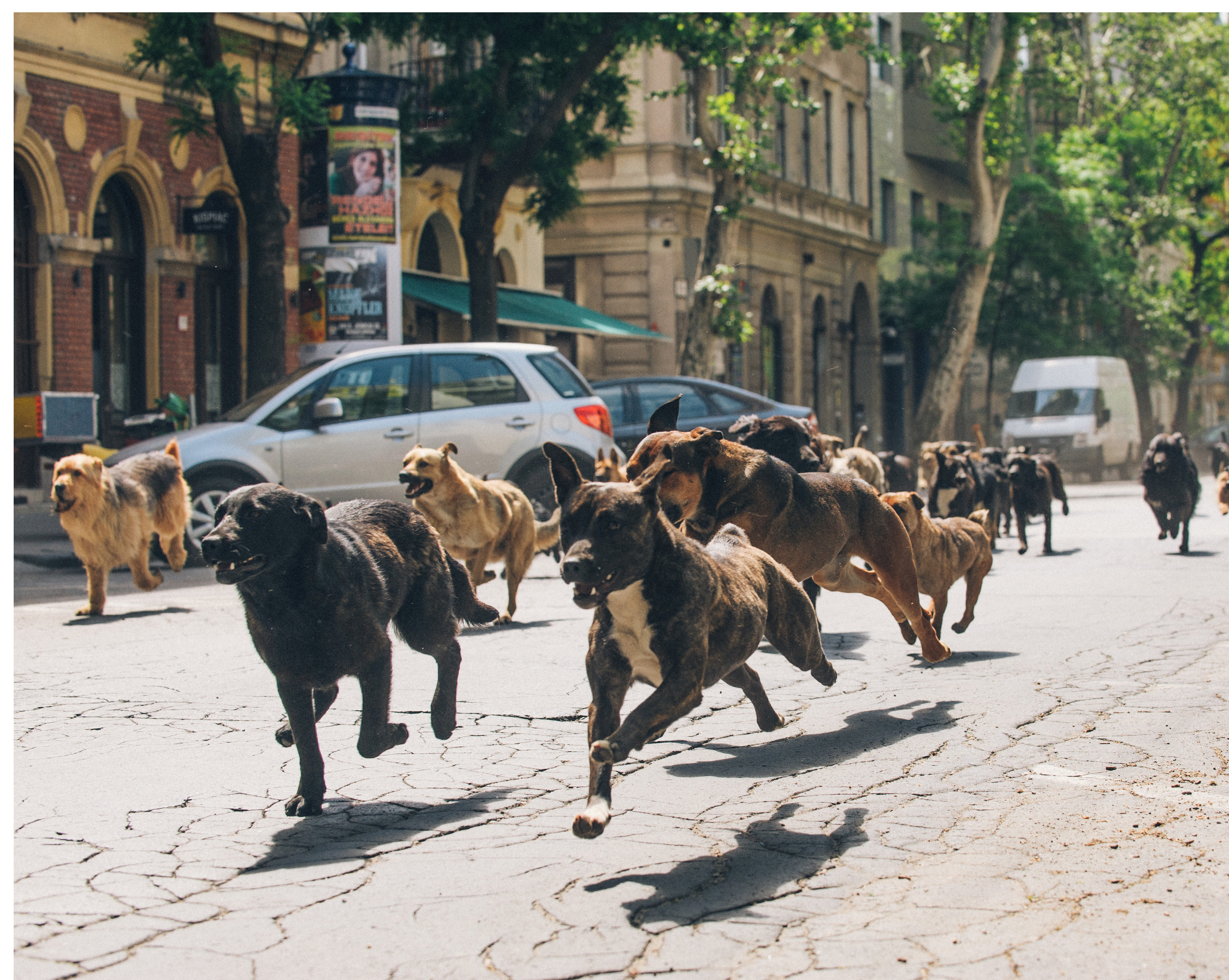There are movies about good dogs (Lassie, Benji, etc.) and bad dogs (Cujo, White Dog, and so on), but it’s hard to accomplish both in the same picture. Hungarian director Kornel Mundruczo begins White God with a promising, eerie prologue on the bad-dog side of the fence: an empty city, almost like that of 28 Days Later, with a small 13-year-old girl riding her bike through the desolate streets. Behind her, a marauding pack of feral dogs slowly grows in size, numbering into the hundreds, until they finally, deliberately pursue her. Lili (Zsofia Psotta) pumps her legs madly, totemic trumpet in her backpack, until she’s finally overtaken. Rendered in slo-mo, it’s a strikingly good sequence, a nightmare. Then the movie loops back to the start of its story, revealing the snarling future pack leader to be Lili’s beloved gentle pet.
How did good dog Hagen turn bad? I wish, after that auspicious opening, the answer were more magical and enchanting. White God initially suggests fairy tale or fable, then splits into familiar, parallel accounts of two rebels brutalized by the cruel system. Hagen’s you can easily guess: cast out of Lila’s father’s apartment because of a neighbor’s complaints; roaming wild with other unwanted street mutts; pursued everywhere by animal-control authorities; and captured by a dog-fighting ring. (Those latter sequences are nowhere near so realistic as in Amores Perros.) Lila, her mother remarried and on a trip, meanwhile acts out in the usual ways: mouthing off to her school orchestra leader, running away from home, following an older boy to a disco, swigging vodka, etc.
After the recent Planet of the Apes reboot, with CGI Caesar (Andy Serkis) leading his simian troops, we’ve come to expect a lot more from the revolt-of-nature genre. There’s a nice potential irony to global insurrection being led by the family dog curled up by the hearth, but Mundruczo doesn’t have the tools or the ambitions to push beyond the symbolic Lila/Hagen dyad. (Her father is no ogre, so the symbolism doesn’t really hold up anyway.) Psotta has the solemn, delicate countenance of a fairy-tale heroine who deserves more than Lila’s typical tween adventures. White God never ventures into real Cujo-style horror, and violence against animals is barely shown (it’s OK for kids 12 and up, I’d say). There’s also a political aspect to the purebreds-versus-mongrel theme that Mundruczo fails to develop. You remember the first shots, and the last, but the film never really finds its footing.
bmiller@seattleweekly.com
WHITE GOD Opens Fri., April 10 at SIFF Cinema Egyptian. Not rated. 119 minutes.








